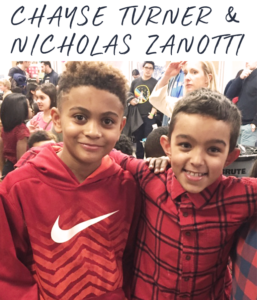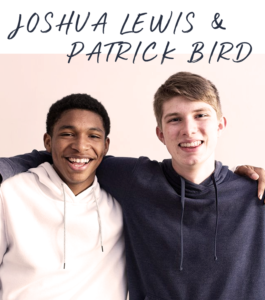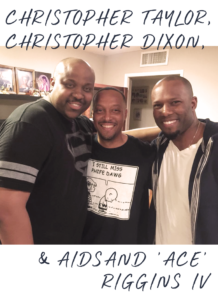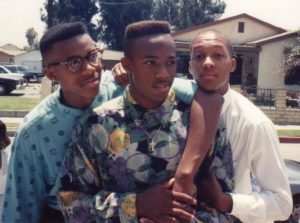Boys talk honestly with their besties about friendship, social media, and what they wish adults knew.
If there’s one situation where boys do show empathy, compassion, and openness, it’s when they’re with their best friends. And that type of relationship has to be protected: In a report published in the Journal of Research on Adolescence, NYU Professor Niobe Way found that more than 85% of American adolescent boys, interviewed over more than 20 years, described their close male friendships as a kind of deep and emotion-based love.
However, her research showed that while boys often had intimate male friendships during early and middle adolescence, they typically lost such friendships by late adolescence, even though they continued to want them. It’s important, then, that we teach our boys how to value and nurture their friendships. And the good news is that some already do. Here, a look at the world of boys through their BFFs.

“We get in a big fight, and then a few minutes later we stop and we’re nice to each other again.”
How did you become friends?
Patrick, 9 ½: We’re neighbors and we live right next to each other.
Quinn, 9: I was getting bored with the other kids on the street and became friends with Patrick after he moved in.
What do you think it takes to be a good friend?
Patrick: Trust, loyalty, and kindness.
Quinn: Kindness, honesty, and helpfulness.
What drives your parents crazy when you’re together?
Patrick: We watch really annoying videos, we talk loudly, we make obnoxious noises.
Quinn: And we play together for almost a whole day.
What do you do when you fight?
Quinn: We get in a big fight, and then a few minutes later we stop and we’re nice to each other again.
Patrick: Or we take a time out from each other for two or three days, but one of us comes crawling back a few days later.
“I wish adults knew the pressure of social media and cyberbullying in this day and age.”
When did you first become friends?
Chayse, 11: We met each other in kindergarten, but became really close in fourth grade.
What’s the best advice he’s ever given you?
Nicholas, 12: To keep my head up and do not let anyone bring it down.
Chayse: Nick stops me from getting in trouble. There was a boy that always irritated me in fifth grade and once I was so upset, I wanted to fight him. Nick stopped me and told me I was better than that and that I shouldn’t get myself in trouble.
What do you wish adults knew about what it’s like to be a boy today?
Nicholas: I wish adults knew the pressure of social media and cyberbullying in this day and age. It’s real.
Chayse: It’s also scary being a black boy today because some people think we are bad based on the color of our skin, and I don’t want someone to hurt me as a result of their own beliefs which are untrue.
What kind of pressure are you dealing with right now that you don’t think past generations have had to deal with?
Nicholas: Technology and posting on social media. Sometimes people I’ve never met write not-flattering things on social media posts. We call it trolling.
Chayse: I think people in my generation have to deal with cyberbullying a lot more than past generations.
“Sometimes we hug, or bro-hug, or pat each other’s backs when we’re playing football.”
What do you like most about each other?
Ethan, 11: He is thoughtful and a good friend. If someone asked him to play, he doesn’t want to play without me. When people are mean to him, he doesn’t overreact — he just ignores them. He also doesn’t care what people think of him. Like if someone calls him names, he doesn’t care. Some may call him gay or jerk or mean, or the p-word [pussy] because he doesn’t want to get into a fight. He keeps it chill and just walks away. He calls me over, and we just go play other games.
Gage, 11: His laugh makes me laugh; he sounds like a squirrel. I like that he’s kind to my family, and he uses his manners. I like that he also doesn’t like to fight. One time when we were playing football at recess, a boy was going to punch Ethan, but I blocked the punch and got in trouble for fighting. The school called my mom, but she didn’t get mad because I was protecting my friend.
Has anyone ever made fun of you for being so close?
Ethan: Yes, some have called us gay because we hang out a lot. They’re probably jealous because they don’t have a good friend like me. Sometimes when they see that we hug each other, they say things.
Gage: Sometimes we hug, or bro-hug, or pat each other’s backs when we’re playing football. The other boys say, “That’s weird,” or “You’re gay.” We just get mad and walk away and keep playing football.
What’s the best advice he’s ever given you?
Ethan: Don’t listen to what other people say. Also, once he told me that I shouldn’t let people be so mean to me. That I shouldn’t be afraid to stand up for myself. He didn’t understand how I can always stand up for others and defend others, but I don’t stand up for myself. He says I should not be afraid to tell people to stop messing with me, just like I tell them to stop messing with my friends.
Gage: Ethan helps me with my school work in class. He tells me there’s an easier way to do something than what I’ve usually been doing. I think he doesn’t want me to get bad grades.



